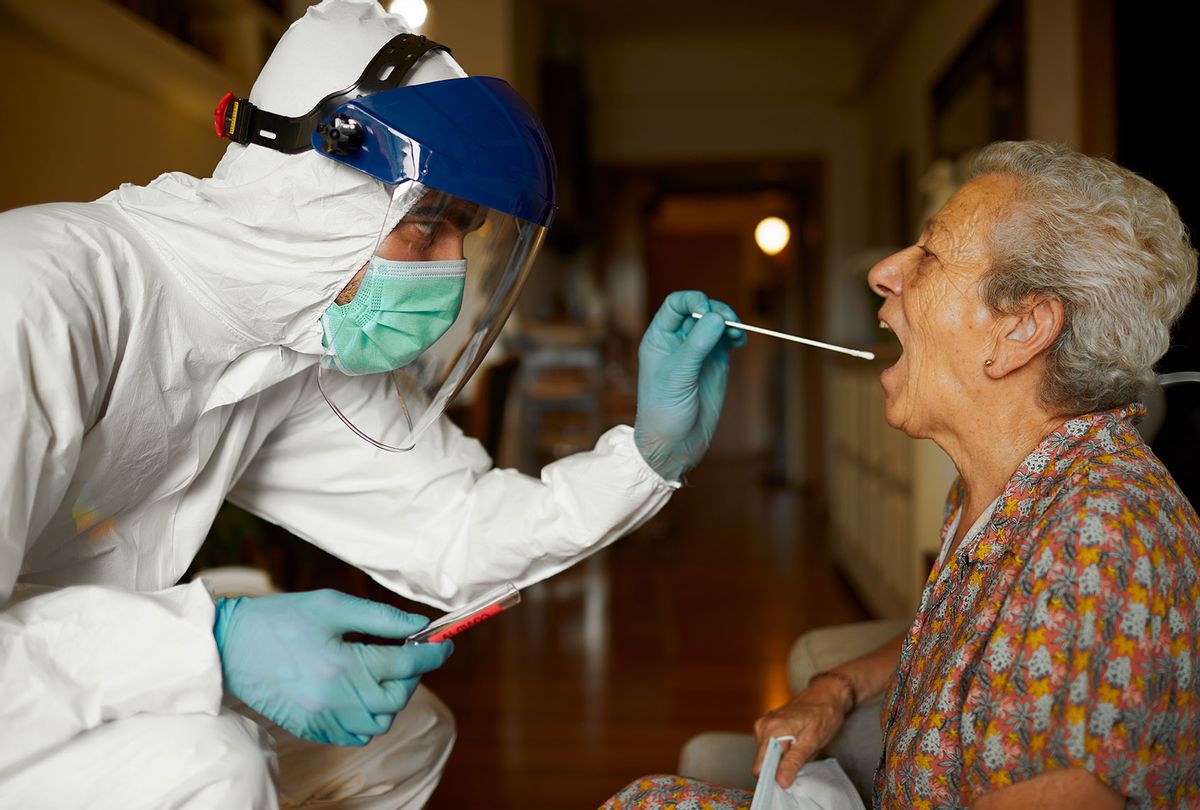A panel that advises the Centers for Disease Control and Prevention (CDC) recommended that, if and when limited vaccines become available to the American public in the coming weeks, health care workers and residents of retirement homes should have access to them first.
The Advisory Committee on Immunization Practices (ACIP), a group of medical experts that provides advice to the CDC even though they are not part of the organization, convened on Monday to discuss who should receive the first vaccines if they become available in the near future, according to CNBC. The conversation occurred in light of the fact that Pfizer submitted an emergency use authorization (EUA) request to the Food and Drug Administration (FDA) last month and Moderna did so for its own vaccine candidate earlier this week. Because there will only be limited supplies for each vaccine until the companies can ramp up production, however, the government will need to determine who is given priority access to the initial doses that come out. Health and Human Services Secretary Alex Azar told CNBC last month that in the best case scenario there will be enough vaccine doses available by the end of the year to inoculate 20 million people.
ACIP decided on Monday that those initial doses should go to elderly individuals in long-term care facilities and health care workers who are most likely to be exposed to the disease, according to Science Magazine. The panel's decision was nearly unanimous with 13 scientists voting in favor of it and only one dissenting. ACIP argued that 21 million health care workers and 3 million adults at long-term care facilities should receive doses during the first phase of vaccination, or phase 1a. The next step is for the CDC to decide on whether it agrees with ACIP's Phase 1a recommendation and, if so, how to assist state and local governments as they make the final vaccination decisions.
CDC representatives also said that Phase 1b would most likely go to "essential" workers like police officers, school staff and grocery store workers, while Phase 1c would most likely go to adults with high-risk medical conditions or who are over the age of 65. ACIP did not discuss Phase 1b or Phase 1c plans on Monday.
One ACIP member, Grace Lee, MD, MPH of Lucile Packard Children's Hospital at Stanford University, said during the meeting that she is happy that the panel's recommendations will help America's overburdened healthcare system better cope with the onslaught of COVID-19 patients, according to the University of Minnesota's Center for Infectious Disease Research and Policy. "It's been an exhausting 9 months," she added. ACIP also discussed the logistical challenges in making sure patients at long-term care facilities are vaccinated, given that those institutions often see high turnover and that will make it difficult to guarantee that residents receive two doses (which the vaccines require) and that new residents are vaccinated.
The panel members also discussed how to most efficiently vaccinate healthcare workers, noting that there are advantages to doing so by hospital unit but that they should stagger vaccinations in case workers need to take off after experiencing mild side effects. They may also need to sub-prioritize who receives doses based on different categories of workers; for example, healthcare workers who cannot work from home would be given priority over those who can.
Both the Pfizer and Moderna vaccine candidates are mRNA-based vaccines. mRNA is the part of a living creature's DNA that instructs cells on which proteins to manufacture; mRNA-based vaccines use synthetic mRNA — whose composition is bespoke, based on the virus in question — to train the body's cells to produce precise proteins that are akin to those already found in the given virus it is trying to fight. Both vaccine candidates need to be distributed at very cold temperatures, with the Pfizer/BioNTech vaccine candidate needing to be kept at –70°C and Moderna's vaccine candidate needing to be kept at –20°C, although the company claims it can remain stable for up to one month at consumer refrigerator temperatures of 2°C to 8°C.



Shares